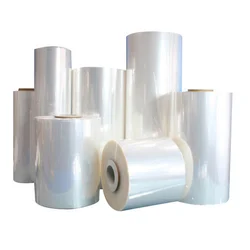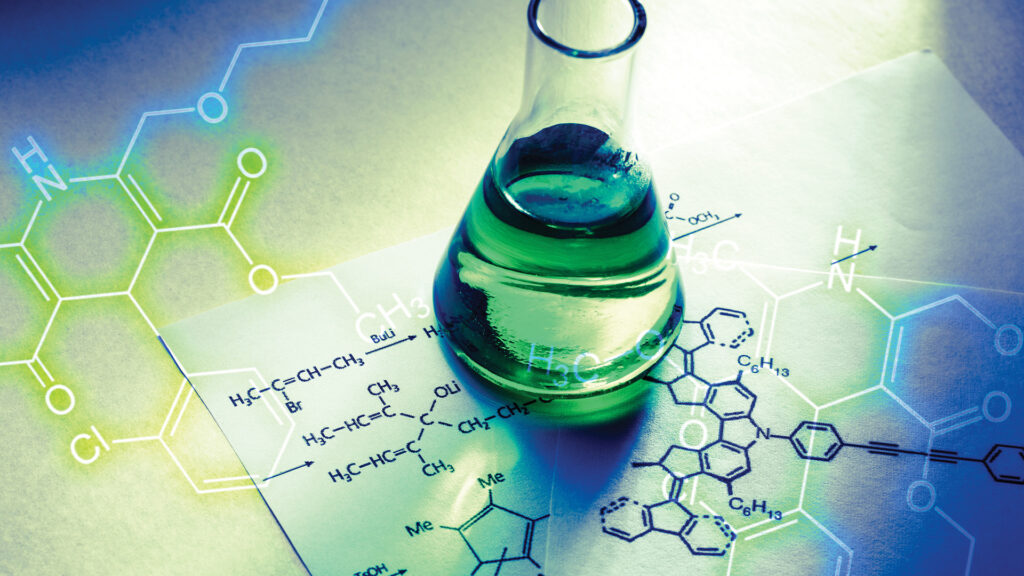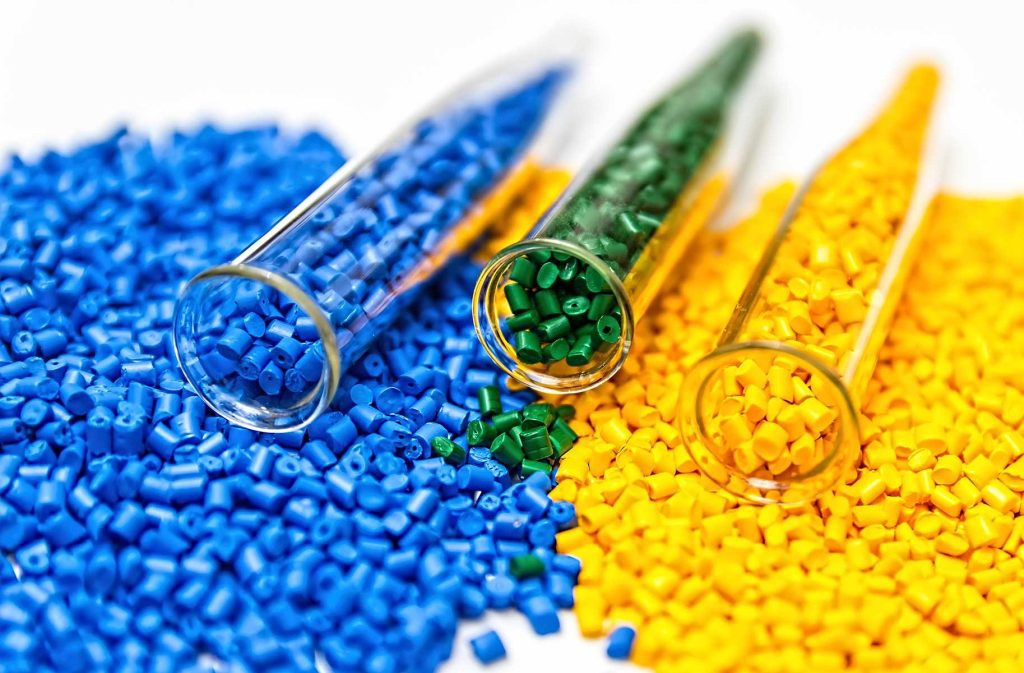Relene (PE)
Relene has revolutionized the packaging industry with its wide range of applications, including woven sacks, milk packs, oil packs, and wire ducts. Reliance’s state-of-the-art polyethylene (PE) manufacturing technology includes the world-class “Sclairtech” Solution Polymerisation from Du Pont and other top-tier technologies from Basell, Ineos, Polymeric Europa, and Total Petrochemicals. Reliance Polymers offers the entire range of Polyethylene (PE) – High Density Polyethylene (HDPE), Linear Low-density Polyethylene (LLDPE) and Low Density Polyethylene (LDPE), each designed to meet the highest international standards. These polymers are exported to Europe, Africa, Middle East, and Southeast Asia. HDPE grades are specially designed to meet demanding applications like high-pressure pipes, telecom ducts, carrier bags, woven sacks, and injection and blow-moulded products. LLDPE grades are used extensively in speciality films, milk and edible oil packaging, lamination films, cast films, stretch films and other applications like rotational moulding and injection-moulded products. LDPE grades find extensive use in heavy-duty films, lamination films, extrusion coating and moulding applications.
Characteristics
Relene 46GP003 (PE-100) is a natural colored grade for pipe extrusion. It possesses bimodal molecular weight distribution, which improves processability. This grade meets the MFI, Density & Hydrostatic strength requirements of material grade PE-100 as per IS: 4984. When incorporated with adequate quantity of carbon black as specified in clause 5.2.3 of IS: 4984, pipes will meet PE:100 requirements. Pipes made from Relene 46GP003 grade passes the Internal Pressure Creep Rupture Test when tested with 5.5 MPa induced stress at o o 80 C for 165 hrs and with 5.7 MPa induced stress at 80 C for 48 hrs as per clause 8.1 of IS 4984, thereby meeting the requirements of PE100 grade. The grade conforms to ISO 4427 specification shown and has been certified for MRS> 10MPa as per ISO 9080.Meets the requirement stipulated in standard IS: 10146-1982 on “Specification for Polyethylene for safe use in contact with foodstuffs, pharmaceuticals, and drinking water”. It also conforms to the positive list of constituents as prescribed in IS: 10141-1982. The grade and the additives incorporated in it also comply with the FDA: CFR Title 21, 177.1520, Olefin Polymers. The level of antioxidant in 46GP003 is not more than 0.3% by mass of the resin.
Repol (PP)
Reliance’s state-of-the-art plants utilize advanced Spheripol and Adipol technologies from Basell and Unipol Process of Dow Chemicals to manufacture Repol grades of various types, which are exported to over 30 countries worldwide. Our product range includes homopolymer, random copolymer, and impact copolymer. Our Homopolymer is available in a wide range of melt flows and is designed to meet the specific needs of various applications, such as injection and blow moulding, IPP and BOPP films, woven sacks, FIBC and fibres. Our Random copolymer grades are engineered to meet the exacting requirements of injection and blow-moulded clear containers, pipes and fittings, and ISBM bottles. Our Impact Copolymer grades are specially formulated to meet the needs of a diverse range of applications, including automotive, appliances, furniture, paint pails, caps and closures, luggage, crates, and compounding.
Characteristics
- Chemical Structure: Repol is a type of polypropylene copolymer, meaning it is composed of propylene monomers along with small amounts of other monomers, typically ethylene. This random copolymer structure gives it specific properties such as improved impact resistance and flexibility compared to homopolymer polypropylene.
- Physical Properties: Repol exhibits a combination of properties that make it suitable for various applications. It has good stiffness, toughness, and chemical resistance. It also has a relatively low density, making it lightweight. These properties make Repol suitable for a wide range of applications in industries such as packaging, automotive, construction, textiles, and consumer goods.
- Processability: Repol is easily processed using various methods such as injection molding, blow molding, extrusion, and thermoforming. It can be molded into complex shapes and can be easily recycled, making it environmentally friendly.
- Temperature Resistance: Repol has a high melting point, typically ranging from 130°C to 171°C (266°F to 340°F), depending on the grade. This high melting point makes it suitable for applications requiring heat resistance.
- Impact Resistance: The random copolymer structure of Repol imparts improved impact resistance compared to homopolymer polypropylene. This property makes it suitable for applications where impact resistance is important, such as automotive parts, household appliances, and durable goods.
- Chemical Resistance: Repol has good resistance to many chemicals, including acids, alkalis, and organic solvents. This property makes it suitable for applications where exposure to various chemicals is expected, such as chemical storage tanks, pipes, and laboratory equipment.
- Transparency: Depending on the grade and formulation, Repol can exhibit varying degrees of transparency or translucency. This makes it suitable for applications such as clear packaging, transparent containers, and medical devices.
- Cost-Effectiveness: Repol is generally cost-effective compared to other engineering thermoplastics, making it a preferred choice for many applications where a balance between performance and cost is required.
Reon (PVC)
Reliance Polymers offers suspension grade Polyvinyl Chloride (PVC), with a wide range of viscosities. State-of-the-art manufacturing technology ensures consistency of the resin quality. Typical applications include rigid pipes and fittings, flexible tubes, hoses, doors, windows, partitions / floor / wall coverings, wires, cables, electrical conduits and fittings, blood bags, tubing, heart catheters, IV fluid bags, toys, sports goods and footwear.
Reliance Industries Limited is a leading manufacturer of suspension grade Polyvinyl Chloride (PVC) in India. With a wide range of viscosities, Reliance ensures that the resin quality is consistent and top-notch. The company has adopted the EDC/Ethylene process, which is acclaimed globally, to maintain the quality of their PVC products. Reon is highly versatile and finds extensive use in various sectors.
- In the agriculture sector, Reon is used to manufacture rigid pipes and fittings, flexible tubes, and hoses.
- In building and construction, Reon is utilized for making doors, windows, partitions, floor, and wall coverings.
- The packaging industry benefits from Reon’s use in the production of bottles, containers, and blister packaging.
- In electrical and electronics, Reon is used to make wires, cables, and electrical conduits.
- The healthcare industry benefits from Reon’s use in the production of blood bags, tubing, heart catheters, and IV fluid bags.
- Reon’s high-quality properties make it an excellent material for making toys, sports goods, and footwear in the consumer goods sector
Metallocene LLDPE
Metallocene Linear Low-Density Polyethylene (mLLDPE) is a type of linear low-density polyethylene (LLDPE) that is produced using metallocene catalyst technology. It is a specialized and advanced form of LLDPE that offers several advantages in terms of its polymer structure and properties.
Properties
- Narrow Molecular Weight Distribution: Metallocene LLDPE has a more uniform distribution of polymer chain lengths, improving processing and mechanical properties.
- High Purity: mLLDPE has fewer impurities and reduced long-chain branching, resulting in better product quality and clarity.
- Excellent Film Properties: It offers high tensile strength, puncture resistance, and tear resistance, making it ideal for packaging films.
- Enhanced Flexibility: It remains flexible even at low temperatures, suitable for cold storage applications.
- Improved Sealing Properties: mLLDPE provides strong heat-sealing capabilities, crucial for secure seals in food packaging.
- Reduced Gel Formation: Metallocene catalysts minimize gel formation, enhancing optical clarity in the polymer.
PET RESIN
PET Resin (Polyethylene Terephthalate Resin) is a thermoplastic polymer derived from terephthalic acid (PTA) and monoethylene glycol (MEG). It is widely used in the production of plastic bottles, packaging materials, textile fibers, and films due to its high strength, transparency, lightweight and recyclability.
Properties
- Mechanical Properties
- High Tensile Strength – PET resin is strong and can withstand stretching forces, making it ideal for bottles, fibers, and films.
- Lightweight – Despite its high strength, PET resin is lightweight, reducing transportation costs and carbon footprint.
- Dimensional Stability – PET retains its shape and size under normal conditions, ensuring product reliability
- Thermal Properties
- Melting Point – Approximately 250-260°C, making it suitable for molding and extrusion processes.
- Heat Resistance – PET has moderate thermal stability but may deform at high temperatures unless modified.
- Chemical Resistance
- Low Moisture Absorption – PET does not absorb water easily, helping to maintain the integrity of packaged products.
- No Reactivity with Food & Beverages – PET is FDA-approved for food contact as it does not leach harmful substances.
- Barrier Properties
- Excellent Gas Barrier – PET prevents oxygen (O₂) and carbon dioxide (CO₂) transmission, making it ideal for carbonated drink bottles.
- Good Moisture Resistance – Acts as a protective layer against water vapor, preventing spoilage.
- Mechanical Properties
Packaging Materials

Innovative and sustainable solutions designed to protect and enhance the value of your products.
Benefit : Sourced from trusted global suppliers to ensure consistent quality.
Chemicals

Industrial-grade chemicals adhering to international safety and quality standards.
Benefit : Suitable for diverse applications, ensuring reliability in every batch.
Raw Materials

Comprehensive range of essential raw materials for seamless production processes.
Benefit : Guarantees consistency in end products and operational efficiency









